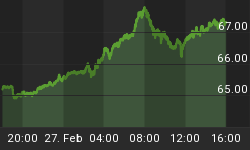With last Friday's downgrades of European debt, the pressure from leaders, such as French President Nicholas Sarkozy, on central banks to print more money will increase. The concept of free markets is coming into question as government intervention is increasing at an alarming rate.
Over the past five years, the primary driver of asset prices could arguably have been money printing, which should be concerning for investors, money managers, and taxpayers. In the video below, we outline several negative consequences of central bank intervention, which allows commercial bankers and politicians to continually avoid difficult decisions related to the proper allocation of resources. The video also describes an ongoing transfer of toxic assets from private to public sector balance sheets, leaving the taxpayers on the hook once again.
The problems associated with the seemingly endless expansion of central bank balance sheets were touched on in a speech given by Jamie Caruana, the general manager of the Bank for International Settlements, given at the Bank of Thailand-BIS conference on December 12; below are some excerpts:
An increase in monetary liabilities - eg reserve money - will have implications for the liquidity of the banking sector in the short run, and this may undermine price stability in the medium term. But an increase in long-term liabilities could also crowd out lending to the private sector.
Taking into account these transmission channels, it is quite clear that large expansions of central bank balance sheets have implications for both the real and financial sectors of the economy. They do create risks - and we must watch these closely. In some historical episodes, central banks did expand their balance sheets too much in order to finance profligate government spending. This often had inflationary results. On other occasions, central banks were too slow in reversing expansionary policies when conditions improved.
This sustained expansion means that the central bank's balance sheet becomes more exposed to market developments - a fall in the value of foreign assets or a rise in long-term interest rates could reduce the value of its assets while leaving the value of its liabilities intact. Today, I would like to consider whether balance sheets of the current size could create broader policy risks. Such risks could include: inflation; financial instability; distortions in financial markets; and conflicts with government debt managers.
We believe flexibility is required in the current event-driven markets, since it remains unclear whether inflationary or deflationary events will drive asset prices in the intermediate-term.















